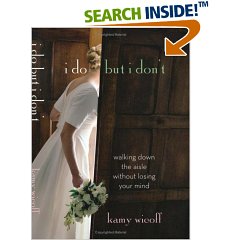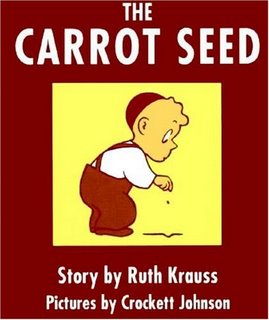
Marriage is a public institution, intended to compel individuals to take responsibility for each other. It is a civil pact and a social system, and individuals who choose to partake in it are not expressing rugged individualism, they are acknowledging the ties that bind.
–Kamy Wicoff, I Do But I Don’t
I wear a diamond engagement ring my husband bought for me.
I got married wearing a white dress.
I changed my last name to my husband’s.
I call myself a feminist.
There are plenty of people that would argue that my fourth statement above doesn’t jibe with the previous three, that I have been thoroughly brainwashed, completely co-opted by history, by tradition.
I insist that my choices are personal, but of course they don’t exist in a vacuum. I live in a socially constructed world. So what to make of my choices?
How can I justify these things, to myself, to my family? Do I need to? That’s what I came down to, the summer of my wedding, and my answer was no.
Around me, friends were refusing church weddings, foregoing name changes, marrying in red and pink and yellow, refusing engagement rings or choosing stones other than diamonds. Does this make them more feminist than I? Is it a contest? Definitely not.
But it was interesting recently to think back on all these wedding decisions, inspired by reading Kamy Wicoff’s smart and thoughtful memoir-cum-social analysis, I Do But I Don’t: Walking Down the Aisle Without Losing Your Mind (her original subtitle, “The Uneasy Marriage Between Modern Women and Weddings,” more accurately reflects the book’s content and tone, but her publisher apparently thought it was a “downer” and suggested the how-to angle). Wicoff was motivated to write her book when her wedding planning failed to fill her joy and excitement; in fact, she kept being brought up short by dissatisfaction, guilt, and ambivalence.
Now, historically, the wife’s gotten the short end of the marriage stick, so a certain amount of ambivalence makes some sense. If you’ve read Marilyn Yalom’s A History of the Wife (and you should), you know that for most of history, marriage served as a business arrangement, or a political alliance, not the “love match” that we look for now. And while we reject that old system’s rigidly limited roles (one of you provides shelter, one of you makes babies) certainly expectations were clearer. Despite an expansion of women’s roles in society and in marriage, today, troubling studies report that marriage shortens a woman’s life span, and that married men and single women both report far greater levels of happiness than married women.
And yet we keep on walking down that aisle.
And this brings me back to Wicoff’s book, for while the prospect of marriage appealed to her very much, and the ability to form an equal partnership with her future husband seemed quite feasible, wedding planning itself turned out to be sadly one-sided, disappointingly fixed in out-dated gender roles. The experience of planning a wedding to the man she loved left her puzzlingly dissatisfied. And although of course the wedding is a single day, the planning can take months and I agree with Wicoff’s ambitious claim that how we negotiate those months can set the tone for the years to come: “It is in our private relationships that change begins,” she writes, “and thinking about the way we wed—and changing it—may not only impact our marriages but our world.”
Wicoff neatly breaks down the elements of the modern wedding, from the proposal to the rings, the clothes to the pre-wedding parties, and offers suggestions for ways to make them more equitable. Many of these suggestions involve simply spending less money, trying to resist the modern wedding industry that has sprung up in the last couple decades and which is focused (so far) primarily on the bride as consumer. Some of her suggestions involve reverting to older, largely abandoned traditions, for instance, the couple marrying in their best clothes, outfits suitable for wearing again and again, rather than one-time outfits. Some are more radical; my favorite of these is proposal month. Since by now most of us come to marriage as a series of discussions, even negotiations, why keep up the farce that someone has to “pop the question?” Instead, a couple agrees to a month in which they will both propose to each other. The element of surprise, the element that most of the time simply keeps the woman suspended in a state of passivity, waiting for her partner’s initiative, is reduced and reimagined. Instead, both partners get to give their speech and present their gift. Both partners, for a change, get a turn taking the active role and the passive.
Wicoff is fearlessly, often almost uncomfortably candid, whether describing “lying on a hotel bed on [her] stomach sobbing, yanking Kleenex by the fistful out of a box on the floor so that [her] nose didn’t run all over the sheets” when her boyfriend gave her earrings instead of the expected engagement ring, or narrating each painful pluck as she spends $35 to have her eyebrows shaped, and not really being able to tell the difference afterwards. For readers more interested in social commentary, Wicoff’s astute use of writers from Arlie Russell Hochschild to Barbara Ehrenreich, will help make the personal more palatable; others, of course, will delight in scenes like the karaoke bar, where she drunkenly insists on the irony in Cyndi Lauper’s “Girls Just Wanna Have Fun.”
The mix works for me. Wicoff’s book is perceptive and well-researched, a genre-mixing blend of cultural criticism and memoir. And despite the publisher’s subtitle, it’s a book that offers as much absorbing reading to those of us who’ve already walked down the aisle as it does to those who are still considering the journey.
Edited to add: I’m linking again to Wicoff’s website, where you can read the first chapter of the book. As she writes:
By incorporating the experiences of the other eighty-plus women I interviewed for this book, even as I relate my own, and by weaving research (both of the scholarly sort and of the People Magazine’s One Hundred Greatest Weddings variety) into the narrative and into the arguments I make, I hope to fulfill my most passionate wish for I Do But I Don’t: that smart women find themselves drawn into an intimate discussion of the most intimate and tricky of issues—the relation between the sexes—because they have been offered a funny, honest, readable narrative as the spoonful of sugar to make my brand of feminist medicine go down.
Look at her website, read that opening chapter, and see for yourself whether, as she puts it, her brand of feminist medicine makes
you spit or swallow. Either way, it’s well worth having a taste.







